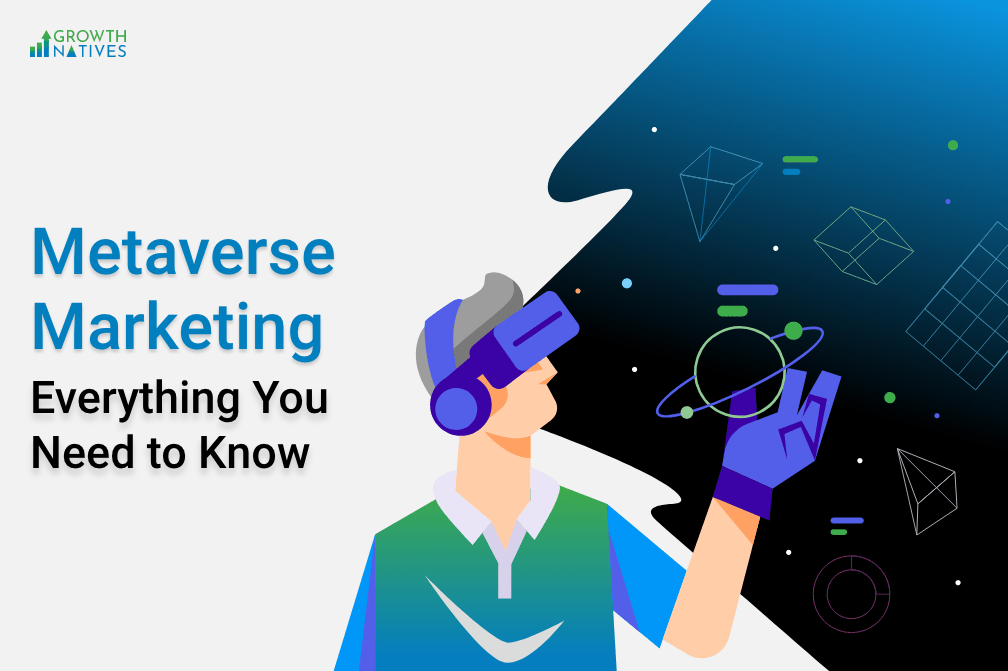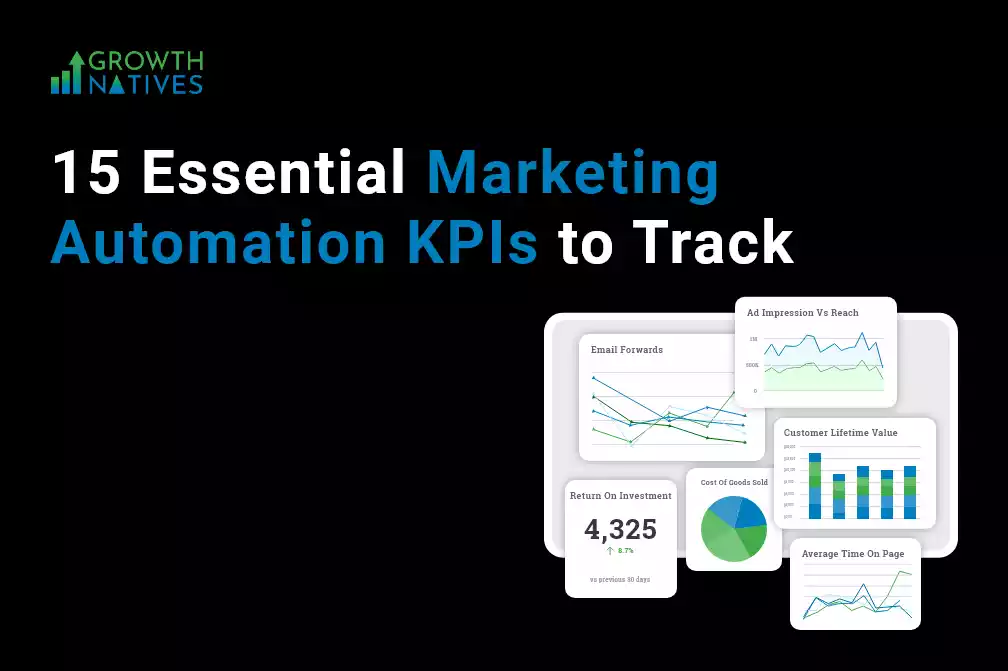
Metaverse Marketing: Everything You Need to Know
By Sakshi Arora
Mar 17, 20228 min read
The Metaverse has gained much popularity among the digital natives in the last few months. Ask Google—this term was searched the most during the April 18th-24th week in 2021. But is it a buzzword or is it buzzworthy?
Even though still in its infancy, the Metaverse is likely to shape the future of marketing and the overall business. This is because it works round the clock and has its own economies powered by creators and infrastructure providers.
So, should marketers care about it? How should you make a move? This article will decode the Metaverse concept and provide some of the best ways to create marketing strategies around it.
What Is Metaverse?
The Metaverse aims to replicate the actual world in a hyper-real alternative digital space. In simple terms, it is a parallel virtual universe that comprises several technologies such as videos, augmented and virtual realities, and 3D avatars. The combination of such multiple interoperable online technologies creates a universe for people to shop, travel, socialize, trade, and interact with each other in their digital avatars.
In other words, the Metaverse exists in real time, contains user-generated content, and is always active and a fully-functional universe.
Still not sure what it means?
Think of the Metaverse as Fortnight, Animal Crossing, Roblox, Minecraft, or any virtual reality video game. Such games give you an avatar in real time, which attends events happening in a particular Metaverse, lives like we do in our actual lives, and fights against each other.
The early adopter of the Metaverse is the gaming industry, with 59% of industry experts claiming that the gaming industry will dominate VR investments in the coming years. But that does not mean other companies cannot follow suit.
Why Brands Need to Market in the Metaverse
Let us cut through the hype and look at some data around the Metaverse:
- Gartner named Metaverse one of the top five emerging technologies in 2022.
- Approx. 46 million people viewed Travis Scott's Astronomical show in the Metaverse.
- A user on the Metaverse purchased a digital Gucci bag for over $4,100, outbidding the actual price of the bag in real life.
Metaverse is not just limited to luxury brands. Companies like Nike, Hyundai, and Disney are also investing in it to engage their audiences. Nike has already filed four patent and trademark applications, while Disney has filed a patent for a "virtual-world simulator" and plans to build a virtual theme park.
Metaverse is the new way to reach the tech-savvy audience. Often dubbed as the next internet, it allows brands to target Millennials and Gen X and engage and update them with the latest products and technologies. With more and more brands starting to incorporate it as part of their marketing strategy, one thing is sure—Metaverse is here to stay and brands will need to adopt an inexorably digital future sooner or later.
Top 4 Metaverse Marketing Strategies
If you are planning to incorporate Metaverse in your marketing strategy, then here are the top four ways to get you started:
1. Natively Insert Your Brand in the Platform
Advertising, by nature, is interruptive—it can be annoying to watch even a five-second video on YouTube. Therefore, the golden rule of marketing in the Metaverse is to organically insert yourself in the platform without disrupting your audience's experience.
While advertising, keep in mind your target audience and select the right platform (PC, mobile, or streaming) and format such as billboards, music, and banner ads. One way to do it is by using native in-game advertising through product placement. Take inspiration from brands such as Samsung, Coca-Cola, and Volkswagen, who all have virtual billboards in several video games, including Hyper Scape and Football Manager.
In-game advertisements also have their set of challenges and benefits:
Advantages
- Higher views and engagement
- Better campaign control and management
- Improved user experience
Disadvantages
- Lack of accessible performance data
- Limited gaming platforms
2. Market As You Do in Real-life
Marketing in the Metaverse does not mean you need to do everything differently. Instead, you can replicate your real-life marketing in the parallel virtual universe. It is the best and the most natural way to get your brand noticed.
For instance, Deliveroo's Animal Crossing campaign deploys virtual riders for deliveries on different islands and gives promo codes to players that they could use in real life.
However, this marketing strategy also has its benefits and limitations:
Advantages
- Higher brand engagement and recognition
- Immersive and organic user experience
- Lower supply chain risk
Disadvantages
- More time investment in campaign planning
- A lof of marketing effort before implementation
3. Invest in the Direct-to-Avatar (D2A) Economy
Take a cue from Gucci and sell virtual retail goods to digital avatars. People love investing money in self-expression in the digital space like they do in real life. That is why the D2A economy is projected to reach $50 billion in 2022 and evolve beyond the gaming industry.
To invest in the D2A economy, brands will have to partner with in-platform creators and experiment with augmented reality to create an immersive user experience.
Here are the advantages and drawbacks of investing in D2A.
Advantages
- Creates a unique shopping experience
- Has a long-term sustainability
Disadvantages
- Development costs
4. Build Immersive Experiences for Digital Avatars
Creating experiential marketing should be one of your top priorities to drive customer engagement. Why? Because 40% of customers are likely to invest in a product if brands allow them to experience it through augmented reality. Don’t we all remember the live concert of Travis Scott, which drew 12.3 million players from around the world? The Weeknd also performed "Blinding Lights" as a digital avatar, live on TikTok.
Creating such immersive experiences in the Metaverse is a sure-shot way to boost engagement and brand loyalty. But while you think about incorporating it in your Metaverse marketing strategy, keep the following pros and cons in mind:
Advantages
- Higher customer reach and engagement
- Suitable for all business types
- Long-term results
- Increased brand loyalty and referral
Disadvantages
- Higher costs
- Additional promotional campaigns are required, which can be costly
- Has to be creative, or else it can backfire
Are We There Yet? Challenges of Metaverse
There is no doubt that the Metaverse holds a promising future for brands, but there are still a few challenges before it takes the world by storm.
1. Lack of Accessibility
For starters, accessibility is still an issue in the Metaverse. Not everyone has all the devices, including VR lenses and higher-end computers, needed to enjoy the virtual experience. This significantly restricts the potential marketing opportunities for brands in the Metaverse.
2. Lack of Seamless Integration
Another challenge for brands is to create a seamless integration between the real world and the Metaverse to avoid alienating users. Creating a well-integrated advertisement that feels natural in the Metaverse is still relatively complex. Since the technology is still new, companies may face trouble finding the right audience and product placement, without which they can come off as blunt and abrupt.
3. Misunderstanding About Metaverse
Limited knowledge of the Metaverse is another issue. There is a cloud of misunderstanding surrounding it, including that this technology is just a game for children. Therefore, brands still hesitate to establish their presence within the platform for fear of not being taken seriously.
4. Security Issues
As with any new technology, there is always a concern about data privacy and security. Unless the security measures have not evolved, building trust is challenging. For Metaverse to be at the heart of a company's marketing strategy, there have to be new regulations for data privacy. Companies need to create new methods of protecting their users' data.
The Future of Metaverse Marketing
Looking at the Metaverse from a VR lens, the future looks promising for the internet. The internet might have taken over two decades to be what it is today, but the future of Metaverse is in for rapid growth, with humans willing to eagerly jump into the parallel universe.
Yet, it is difficult to predict how long it would take to mirror an actual life in the Metaverse. A unified virtual universe is still a long way off. Companies such as Epic Games, Facebook, and Microsoft are working on integrating AR and VR for a fully immersive experience. Also, despite the challenges, brands are still betting on the digital future and are willing to experiment and invest in providing a completely immersive experience.
How are you planning to navigate the new way of marketing? Let us know in the comments section below.
To know how Growth Natives can help you create a robust marketing strategy around Metaverse and prepare for the future, contact our experts today at info@growthnatives.com.




